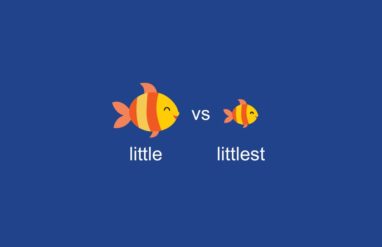You’re trying as hard as you can. Are you doing your utmost or your upmost? Confusion between these two words probably comes from people hearing utmost (which is the correct choice in this case, btw) as upmost (which is otherwise a pretty uncommon word).
This may be because up seems like it should fit situations involving the highest effort. And, in fact, there are some cases where the two words can be used in the same situation, such as when describing words like concern or importance.
Even if you’ve done your utmost to use upmost correctly, it’s still possible to get the two utterly mixed up. Let us help clear things up.
⚡️ Quick summary
Utmost is commonly used as an adjective meaning maximum, greatest, or to the highest degree—or as a noun meaning the best of one’s abilities or the maximum limit. Upmost is a less common variant of uppermost and means highest or topmost, usually in terms of literal height.
What does upmost mean?
Upmost is a much less common variant of uppermost, and it means the same thing: highest in terms of physical height (the most up or most upper, if you will). Less commonly, it can mean highest in order, rank, or some other nonphysical quality. It can also mean the same thing as topmost, in the sense of predominant, as in a subject of uppermost concern (this is the sense that’s often closest to utmost).
Upmost and the more common uppermost are both most commonly used in the context of the height of something, such as the upmost floor of a building. Still, it’s much more common to refer to this as the uppermost floor, the highest floor, or the top floor.
What does utmost mean?
Utmost is commonly used as an adjective meaning greatest or highest in degree or quantity, as in This is of the utmost importance or Guard this information with the utmost secrecy.
Less commonly, it can mean farthest (farthest out) or outermost, as in It’s on the utmost tip of the peninsula.
The noun use of utmost is also common. It means “the most or best of one’s abilities,” as in I did my utmost to ensure their safety, or the extreme limit, as in The spa provides the utmost in relaxation.
The ut- in utmost is actually related to out. Like upmost, utmost has an alternate form that means the same thing: uttermost.
How to use upmost vs. utmost
Upmost vs. utmost is all about up vs. out.
Utmost is typically used in contexts that involve things being at the utter limit or the outer limit. When you do your utmost, you go all out. The utmost point is the one that’s farthest out.
Upmost, on the other hand, is usually about things that are the highest up—often in terms of physical height or priority (think of the top item on a list).
If you’re describing something as being the greatest or the maximum among all options, either word might serve. But utmost is usually the right choice.
Even though utmost can mean the same thing as highest, you wouldn’t use it to describe the top floor of a building. And, to be honest, you probably wouldn’t use upmost either (even though that’s what it properly means). In many cases, it may be best to replace upmost with uppermost, or topmost, or whatever word is clearest for a particular situation.
In general, keep in mind that utmost is much more commonly used than upmost.
Finally, here’s a handy synonym chart to help keep them straight.
- utmost (as in greatest or maximum) = uttermost
- utmost (as in farthest out) = outermost
- upmost (as in highest up) = uppermost
Examples of upmost and utmost used in a sentence
Here are several sentences with upmost and utmost used in different (and sometimes similar) ways.
- Hang the banner from the upmost turret of the castle.
- Balancing our budget is upmost on my list of priorities.
- It is of the utmost importance that we balance the budget.
- I have done my utmost to balance the budget.
- We provide the utmost in quality care.
- The castle is located on the utmost part of the territory.
Now take your knowledge to the next level and take this quiz on upmost vs. utmost.













